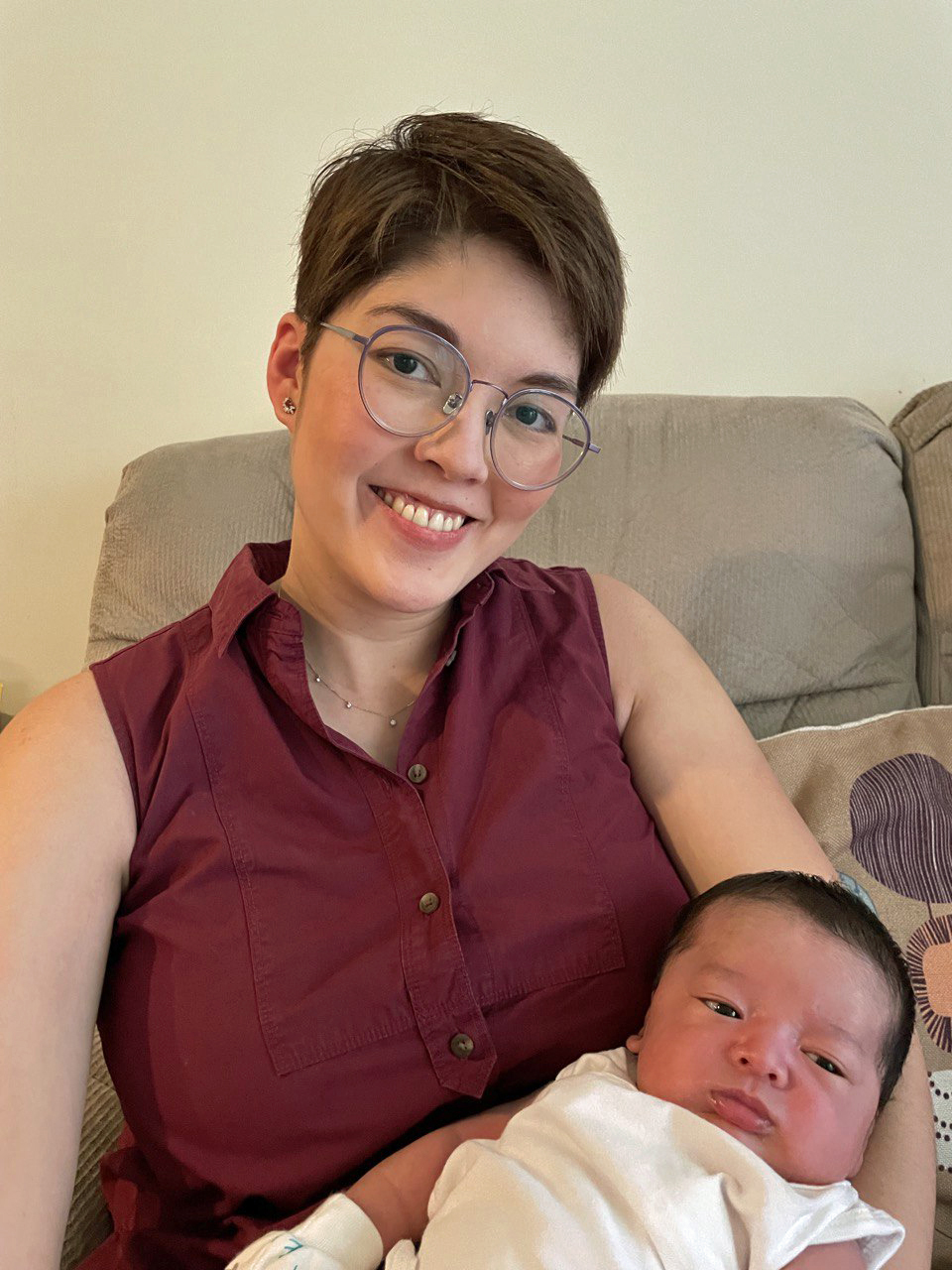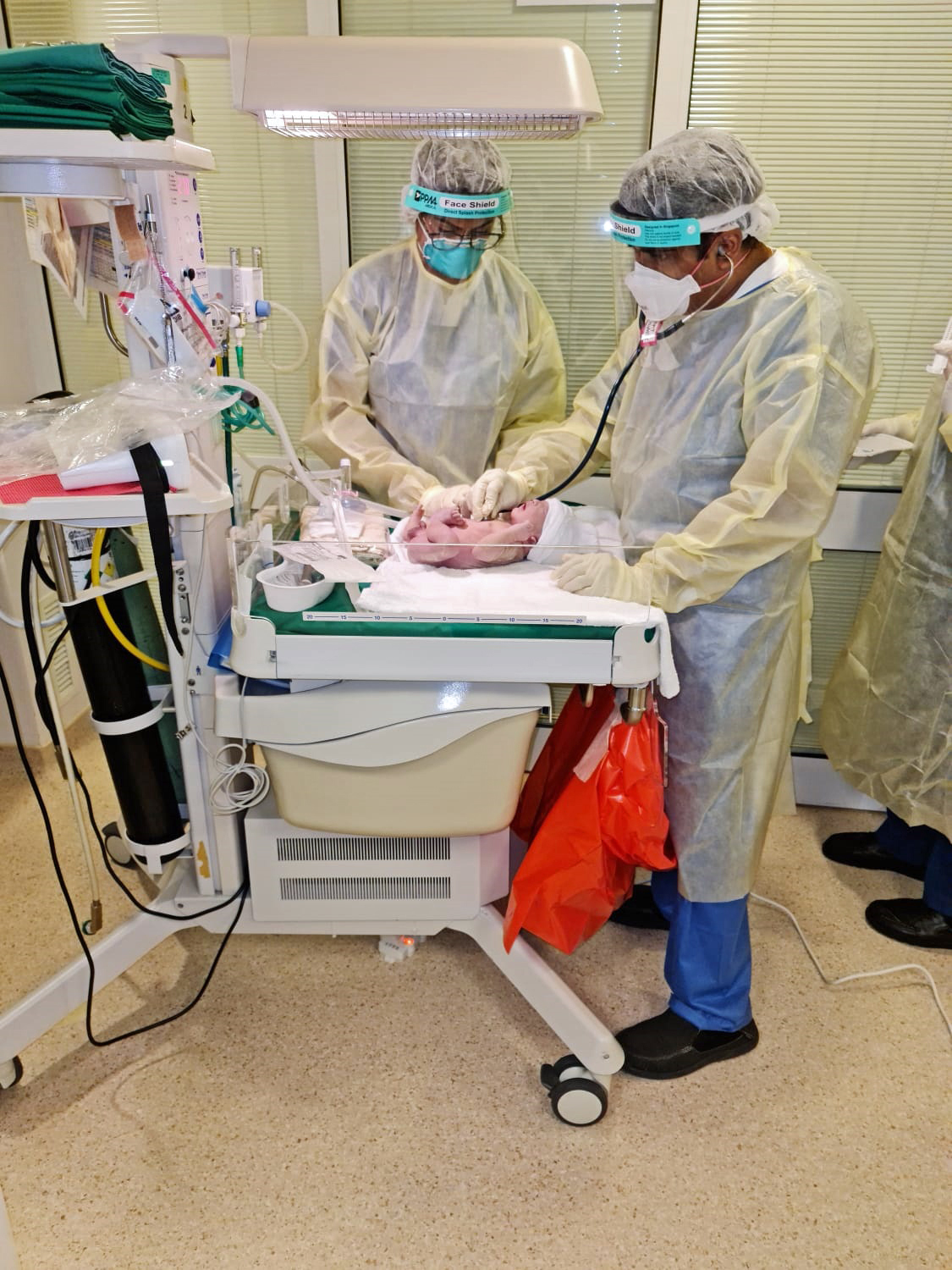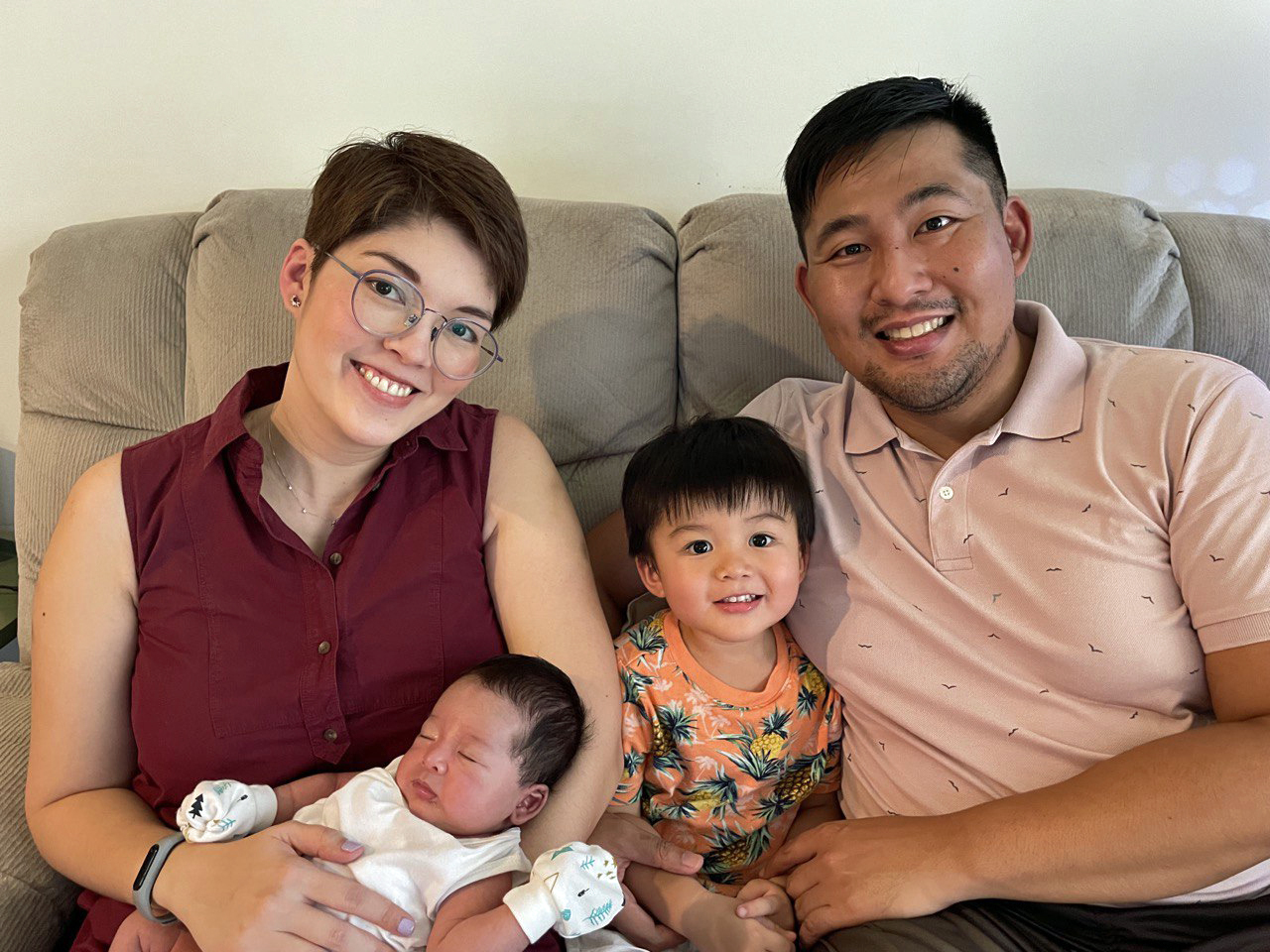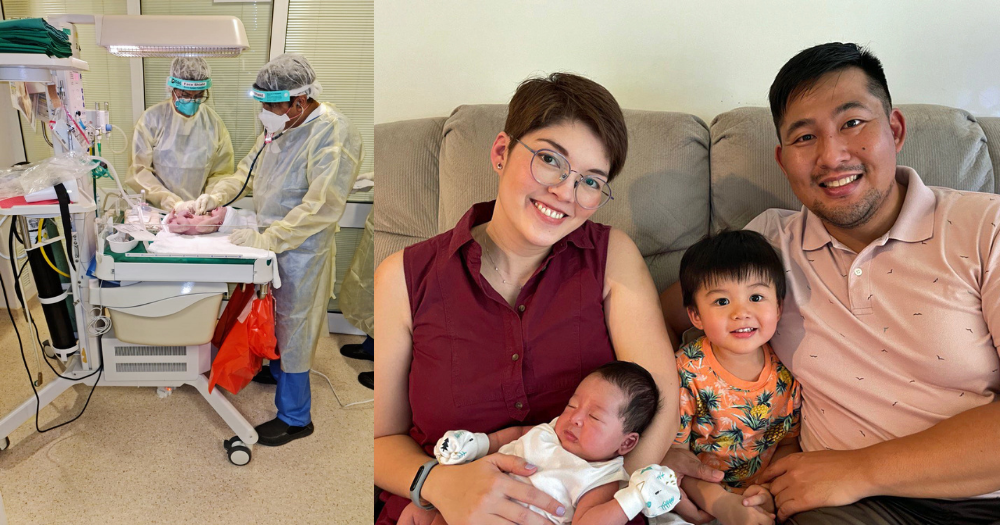Follow us on Telegram for the latest updates: https://t.me/mothershipsg
When 37-weeks-pregnant Vanessa Rickard started having flu symptoms, she thought it was just the common cold.
Two weeks later, the Covid positive 36-year-old gave birth to her second child at Singapore General Hospital (SGH) on Aug. 24 in an isolation ward.
The mother of two has thankfully recovered, and is now urging Covid-19 vaccination for all pregnant women who have yet to do so.
It was the week of National Day when Rickard's symptoms started.
The cold persisted for more than a week without a fever, and Rickard eventually took an Antigen Rapid Test (ART) at home, which came back positive on Aug. 16.
Soon after, a Polymerase Chain Reaction (PCR) test confirmed that she had contracted Covid-19.
She then developed a dry cough, suffered from fatigue, and lost her sense of smell.
This was on top of her pregnancy woes, which included backache, joint pain, and heartburn.
Upon admission at the Singapore General Hospital (SGH), Rickard was given an anti-coagulant, since pregnancy and Covid-19 are both risk factors for thromboembolism, a potentially-fatal condition where blood clots form in the leg.
This prevented her from receiving an epidural when she started having contractions, and she had to give birth without any form of anaesthesia.
It would be weeks later before Rickard was reunited with her healthy baby boy on Sep. 7 after testing negative for Covid-19, a day before her initial due date.
Rickard's newborn was the SGH's first delivery in the isolation ward.
 Rickard is an employment pass holder from the Philippines who works in banking. Image via Vanessa Rickard.
Rickard is an employment pass holder from the Philippines who works in banking. Image via Vanessa Rickard.
Isolated for almost three weeks
Rickard spoke to the media about her experience in a Zoom interview conducted by SGH.
For her, the hardest part of it all was being all by herself during her hospital stay. Unable to welcome any visitors, she remained in the isolation ward for almost three weeks.
Most other pregnant women are discharged within one to three days after delivering.
Even after birth, for two and a half weeks, she could only meet her newborn via video call.
This is because Rickard chose to place her baby in a newborn isolation ward after consulting her doctors, although rooming in with the baby was offered as an option as well.
Covid-19 positive mothers encouraged to feed newborns breastmilk
Rickard would also pump milk and hand them over to the nurses for her baby. Based on new evidence, SGH encourages Covid-19 positive mothers to feed their newborns breastmilk.
According to Dr Sridhar Arunachalam from the department of neonatal & developmental medicine in SGH, breastmilk has antibodies to protect the baby against Covid-19.
 Image via SGH.
Image via SGH.
Encourages other pregnant mothers to get vaccinated
When Rickard first learnt that she was pregnant in Dec. 2020, there was very limited data at that time regarding the effect of vaccines on pregnant women and their fetuses.
As the vaccine rollout started in Singapore, more data on the matter became available, and Singapore's expert committee said in May that pregnant women could get vaccinated safely.
But Rickard was hesitant, as she was already halfway through her pregnancy at the time.
"I did consider getting vaccinated, but I was just thinking it's just a few months left anyway, so might as well not take it, and I just figured I'll take it after giving birth," she shared.
Staying at home most of the time, she clearly did not expect to contract the virus on the 37th week of her pregnancy.
"After going through all this, I would encourage all pregnant women to get vaccinated as soon as they can," she said, "it might not prevent them from getting the virus, but the benefits of the vaccine outweighs the risks."
 Image via Vanessa Rickard.
Image via Vanessa Rickard.
Increasing number of pregnant Covid-19 patients
Benjamin Cherng, a senior consultant at the department of infectious diseases in SGH, shared that SGH had not seen any pregnant Covid-19 patients before August.
In the last few weeks however, with the highly transmissible Delta variant, SGH staff has seen a steady stream of pregnant patients with Covid-19.
He shared that the risk of Covid-19 related complications remain low in the general population, pregnant patients are at a higher risk of developing severe Covid pneumonia as compared to non-pregnant patients.
With the new wave of local infections, he has seen at least 10 Covid-19 patients who are pregnant in SGH.
Some of them have required oxygen support, while sicker ones were treated as high dependency patients.
Thankfully, all of these patients have since recovered.
Low vaccination rates among pregnant women
Cherng said that the vaccination rates among the pregnant patients coming through SGH are extremely low.
"I have yet to see any fully vaccinated Covid positive pregnant patients in the hospital," he said, "to my knowledge, almost all of them are unvaccinated and only very few are partially vaccinated."
Vaccination safety for pregnant women
"Things were maybe not so risky last year, but with the community spread this year, we are strongly encouraging our pregnant patients to be vaccinated," said Tan Wei Ching, senior consultant at the department of obstetrics & gynaecology in SGH.
Based on data from the United States, the Obstetrical & Gynaecological Society of Singapore and the College of Obstetricians and Gynaecologists Singapore issued a joint statement about the safety of Covid-19 vaccination for both mother and fetus in June.
"In fact, not getting vaccinated has an even higher risk for patients especially in the later part of pregnancy because you're at high risk of severe disease and getting admitted to the ICU," she added.
For mothers who have very severe pneumonia from Covid-19, doctors may also need to consider delivering the baby early or even premature, which can lead to further complications.
According to a media statement by the U.S. Centers for Disease Control and Prevention (CDC) on Aug. 11, their analysis "did not find an increased risk of miscarriage among nearly 2,500 pregnant women who received an mRNA Covid-19 vaccine before 20 weeks of pregnancy".
On the other hand, Tan shared that pregnant mothers who contract Covid have a higher risk of early miscarriage and displaying signs of premature birth.
Follow and listen to our podcast here
Top images via SGH and Vanessa Rickard.
If you like what you read, follow us on Facebook, Instagram, Twitter and Telegram to get the latest updates.
